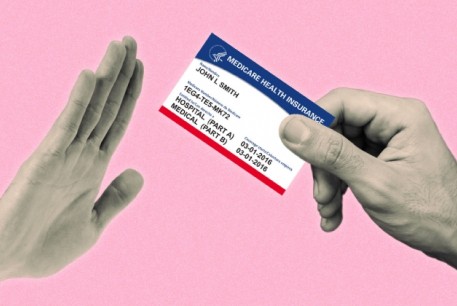Top 5 Things That are NOT Covered By Medicare

Once you become Medicare eligible, you make think you have everything covered. And the truth is that the vast majority of seniors are happy with their Medicare coverage, especially those that work with local Medicare experts to find the best plans.It is important to know the things that are not covered by Medicare, so you can make sure you plan for proper coverage and avoid any unpleasant surprises when you transition to Medicare.
Here are the top 5 things that Medicare does not cover.
Long Term Care Coverage-
While Medicare does cover Skilled Nursing Facility Care, in certain situations, it does NOT cover Long Term Care needs, which can be incredibly expensive if not properly planned for. On average, 7 out of 10 seniors will need long-term care coverage at some point in their remaining years, and on average they will need it for about 2.8 years.
Medicare only covers up to 100 days in a skilled nursing facility per benefit period (annually). In order to be covered, the the stay must follow a qualifying inpatient stay in a hospital, and you must need a higher level of care than just help with activities of daily living. This is a very specific circumstance and one that is commonly overlooked.
If you only need custodial care—assistance with eating, bathing, and toileting—Medicare will not cover your stay.
On top of that, if your Skilled Nursing Facility stay is in fact covered, it is not cheap. It will cost about $185 per day for days 21-100. That could amount to over $14,000 if you stay in the facility for over 3 months. The copyament may be covered if you have a Medigap plan, but it won’t pay for any services that Medicare doesn’t typically cover.
One recommendation is to consider Long Term Care insurance, which is a private insurance plan offered that is not at all affiliated with Medicare. There are also tax-advantaged savings plans that you could set aside money for long-term care in.
Routine Dental & Vision-
As I’m sure you are aware, the older you get, the more dental work you will likely need, as well as the greater the chance you will have vision issues. Routine dental and vision however, are not covered by straight Medicare (Part A & Part B).
Routine dental visits, along with treatment for common dental issues (cavities, broken teeth or serious dental conditions) are all not included. The only dental service that is included in Medicare is anything dental surgery you need to have as part of a larger medically necessary health condition treatment. One example of this is needing a routine dental visit in order to treat a heart condition.
Similarly, Medicare typically doesn’t cover routine vision exams, glasses, or contact lenses. If you are diagnosed with cataracts, Medicare will pay for the surgery and one pair of corrective lenses, but ongoing routine vision care isn’t covered. As with other non-covered Medicare services, your Medigap plan won’t help with routine eyecare.
You can speak with your local agent about enrolling in a Medicare Advantage plan that includes vision and dental coverage, or by adding coverage alongside your Supplemental plan.
Hearing Aids
Hearing aids can be very expensive and it’s important to know that Original Medicare does not cover routine hearing care. One out of every 3 seniors aged 65-74 will incur hearing loss, and the average person could spend about $3000 on out of pocket hearing aids.
You can speak with an expert about getting additional coverage on hearing aids
Prescription Drugs-
Perhaps the biggest misconception is that once you are enrolled in Original Medicare, your prescription drugs will be covered. The short answer is, no they will not be. And even if you don’t currently take any medications, the likelihood that you will is very high, over 90% of all seniors take at least one prescription drug.
Most prescription drugs that are taken at home are not covered and it’s important that individuals enroll in a drug plan (if they choose a Medicare Supplement Plan), or an Advantage Plan that includes their drugs. If you choose not to take a Part D Plan, and you are eligible for one, you will be charged a late enrollment penalty, even if you don’t take any medications.
International Travel Coverage-
Medicare does not cover you outside of the United States. This is very important to consider, especially since many seniors plan on traveling as part of retirement. Some Medicare Supplements and Advantage plans will offer some level of coverage, but if you are someone who travels frequently, an additional policy may be a smart idea to avoid heavy costs in the event of an emergency overseas.
Get Additional Support-
Clearly there are a lot of rules and nuances when it comes to Medicare coverage. It’s very important to compare your options and learn the landscape when you become eligible to enroll in a plan. Working with a local agent is crucial to compare premiums, deductibles, and copayments, as well as evaluating your prescription drugs and doctors.






